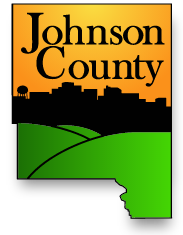Decategorization Board Vacancies and Board Application
Decategorization Board Minutes and Agendas (click on Social Services)
The Johnson County Decategorization Program implements Iowa’s Child Welfare Decategorization Program. Decategorization is designed to redirect child welfare and juvenile justice funding to services which are more preventive, family-centered, and community-based in order to reduce use of restrictive approaches that rely on institutional, out-of home, and out-of community care. The JC Decat Program partners with community stakeholders to develop service alternatives that provide less restrictive levels of care for children and families within Johnson County. Collaboratively, services are planned with input from citizens, consumers, education, health, human services, and local government with the goal of ensuring services that promote child health and safety, family stability, and positive youth development.
Current Board Members
- Jon Green, Johnson County Board of Supervisor
- V Fixmer-Oraiz, Johnson County Board of Supervisor
- Amy Howell, Iowa Department of Health & Human Services
- Coreen Frank, Iowa City Community Schools
- Delaney Dixon, Domestic Violence Intervention Program
- Heather Bopp, Four Oaks Family and Children Services
- Secalee Schinstock, Juvenile Court Services
- Susan Vileta, Johnson County Public Health
Meetings are scheduled the 2nd Tuesday of most months from 2:30pm to 4:00pm. Meetings are open to the public. For more information about meetings, contact Laurie Nash at 319-356-6090 or email [email protected]
Staff
Johnson County Social Services provides staff support for the Johnson County Decategorization Program. Contact Laurie Nash at 319-356-6090 or [email protected] with any questions.
Annual Progress Report
Annual Service Plan
Overview
Johnson County Decategorization Program's Priority Service Areas:
- Address the needs of children and families currently involved in the child welfare and/or Juvenile Court System, paying particular attention to the needs of minority children and families.
- Address isolation of mental health and trauma needs of youth and families that are at risk of involvement in the child welfare and/or Juvenile Court System.
- Promote positive youth development for youth ages 6 to 16 years during out of school time, paying particular attention to youth most at risk for involvement in the juvenile justice system.
